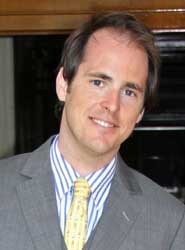The research project undertaken by Dr Duggan will be supervised by Professors Saadeh Suleiman, Gianni Angelini and Andrew Halestrap of the Bristol Heart Institute (BHI). It focuses on understanding the damage to the heart caused by oxidative stress during coronary artery disease and the role of mitochondria. Mitochondria are structures inside heart cells that are responsible for producing energy necessary for maintaining normal function.
It is generally accepted that one important failing of experimental research in providing effective prevention and treatment of coronary heart disease has been the lack of suitable models of progressive, long-term ischaemic heart disease (where there is an insufficient supply of blood to the heart due to a blocked artery). The proposed work will use a recently validated experimental model of chronic coronary artery disease to examine the role of disease-induced oxidative stress on the mitochodria. It is hoped that better understanding of this process will aid development of improved treatments for heart disease and for use to protect the heart during surgery.
BHI is an internationally recognised centre of excellence for performing interdisciplinary cardiovascular research that takes basic science discoveries into the clinic. It consists of over 200 researchers and clinicians located in the University of Bristol and across Bristol NHS Trusts.
Professor Suleiman said: ‘This fellowship provides a unique opportunity to improve our understanding of the changes that occur in heart cells during chronic heart disease and will help our current (and planned) clinical trials that use drugs to target the mitochondria in patients undergoing surgery in Bristol.’
Barbara Harpham, National Director of Heart Research UK, said: ‘We only award one surgical fellowship a year and we’re delighted it has gone to such a promising, talented young clinician working in a world-famous centre of excellence. Not only will this project further medical research in cardiovascular disease, but we are also investing in a young researcher who could well go on to becoming an expert in this field in the future.

